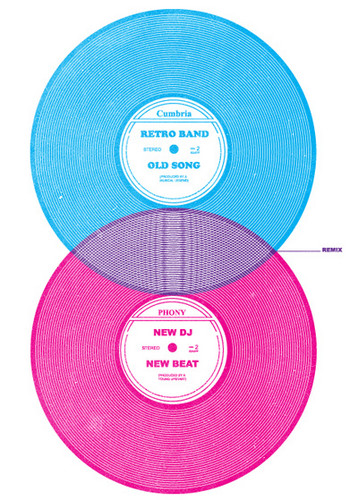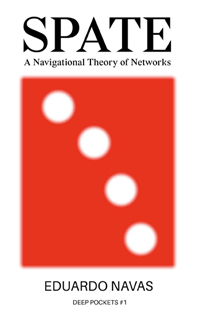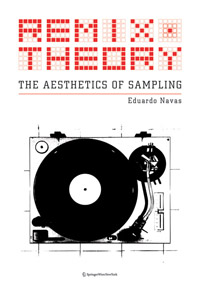Analysis of Remix Theory for New Visions of the Book by Janneke Adema

Image source: Open Reflections
Janneke Adema has taken the time to analyze selected texts available on Remix Theory. She connects my theories of Remix to the future of the book. Adema also discusses the theories of Lev Manovich in terms of Remixability.
Here are excerpts of the articles:
New Visions for the Book II: Remix
http://openreflections.wordpress.com/2010/11/06/
new-visions-for-the-book-ii-remix/
In the first part of New Visions for the Book, I described how the concept of the book is being used as a strategic power tool to argue for a certain knowledge system. I tried to show how within this discourse certain essentialist notions—such as authorship, stability, and authority—still hold a lot of prestige and are hard to discard. In the subsequent parts of New Visions for the Book I therefore want to take a few expeditions outside the world of the scholarly book to look at the way other disciplines and other media have struggled with or have come to terms with the above mentioned notions. I want to start with looking at the concept of remix, engaged with mostly in music and art theory but increasingly a concept applied to describe and analyse culture at large. Here I want to focus on two thinkers who have extensively theorized remix: Eduardo Navas and Lev Manovich. After taking an in depth look at Navas work on remix first, I will explore Manovich’s thoughts on the subject in the next post, contrasting it with Navas’s ideas. Finally, I will explore what the consequences of their thoughts and their analysis of remix are for the scholarly book, the knowledge order it stands for and the concepts it reifies.
Part 2 – Lev Manovich
http://openreflections.wordpress.com/
2010/11/08/new-visions-for-the-book-ii-remix-2/
Lev Manovich is a professor of Visual Arts, at the University of California, San Diego, specialized in new media, software and digital culture. Manovich directs the The Software Studies Initiative where he practices cultural analytics. Similar to Navas, he has theorized and applied the concept of remix frequently in his papers and books. However, although at some points overlapping, Manovich position on remix differs in specific ways from Navas’s where his focus seems to lie more on the functional possibilities of remix than on the dialectical power structures that have surrounded and triggered remix. In his article ‘remixability’ (2005) Manovich explores Dybwad’s concept of collaborative remixability, which is build upon the aspects of shareability and recombinable information and media. Manovich mostly focusses on the way both the production and the consumption (and analysis) of culture has changed with the coming of new media. Through the development of software, remix has become a common condition for our digital culture. Symptomatic to remix culture is the introduction of the time-aspect. As Manovich states there are no longer senders and receivers of information in the classical sense, they are only temporary ‘reception points’ in information’s path through remix. The concept of modularity is also important in Manovich’s writing on remix, where he sketches an utopian future in which culture would function as Lego-blocks:
Part 3: Remix re-examined
See here for part 1 and here for part 2
http://openreflections.wordpress.com/
2010/11/10/new-visions-for-the-book-ii-remix-3/
Navas’s and Manovich’s thinking on remix seem to complement each other nicely. Where Navas analyses remix as discourse from a historical context, taking into account power-relations and the wider societal context shaping and triggering the rise of remix, Manovich takes a deep leap into the future, trying to think a world in which remix and the free flow of information through meta-media have become ubiquitous. He explores what this will mean for the way we produce, consume and analyse culture. Navas shows how remix has been an active force for change in the past, Manovich wants to explore how remix can still be an active stance to shape culture in the future. Both of them introduce the problem of fluidity and time and what this means for our (print-based) object-oriented society based on repetition of well-defined objects created by specific authors. Navas looks at the archive as a means to capture and stabilize cultural fluidity whilst at the same time creating reliability. Manovich looks at the way we can work with modularized recombinable data-sets to structure and control information flows. Both of them struggle with the dilemma of object-like thinking within a fluid environment. For both of them remix is or has become the defining characteristic of our digital culture.








